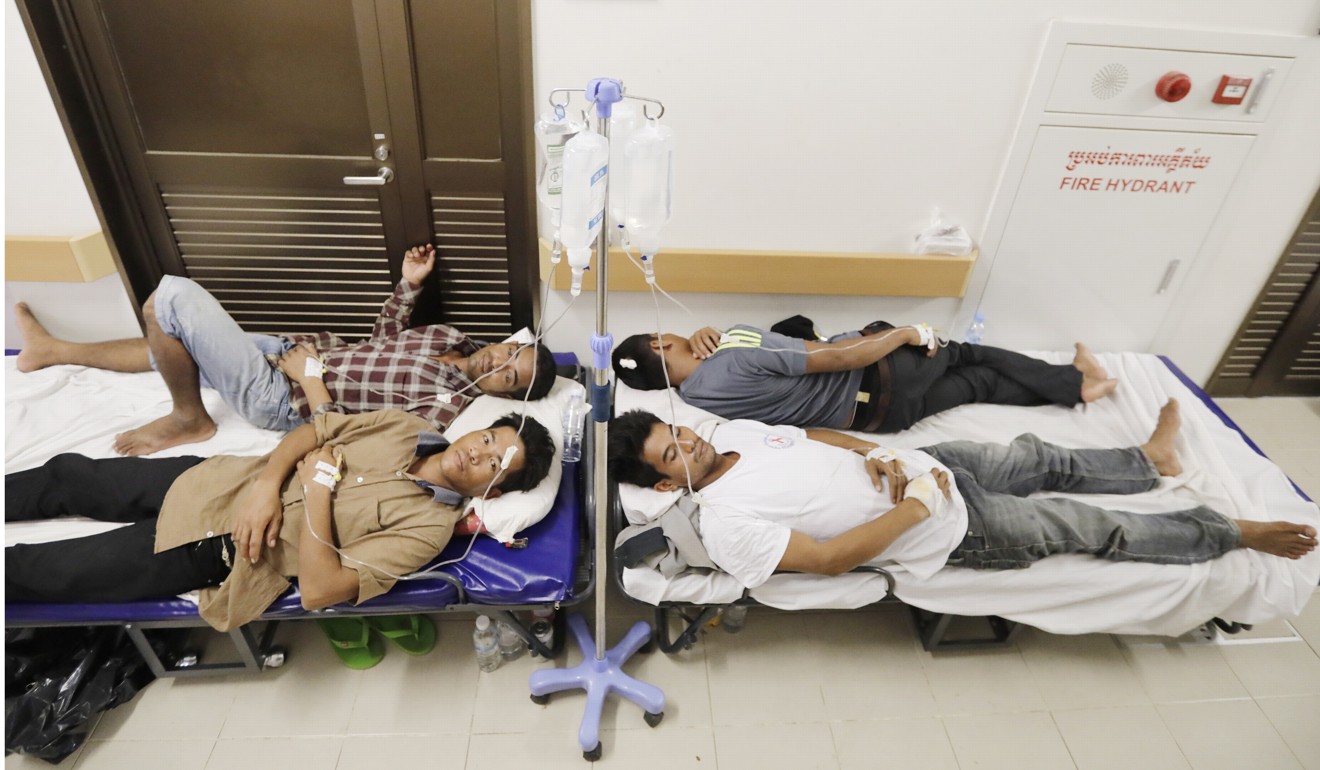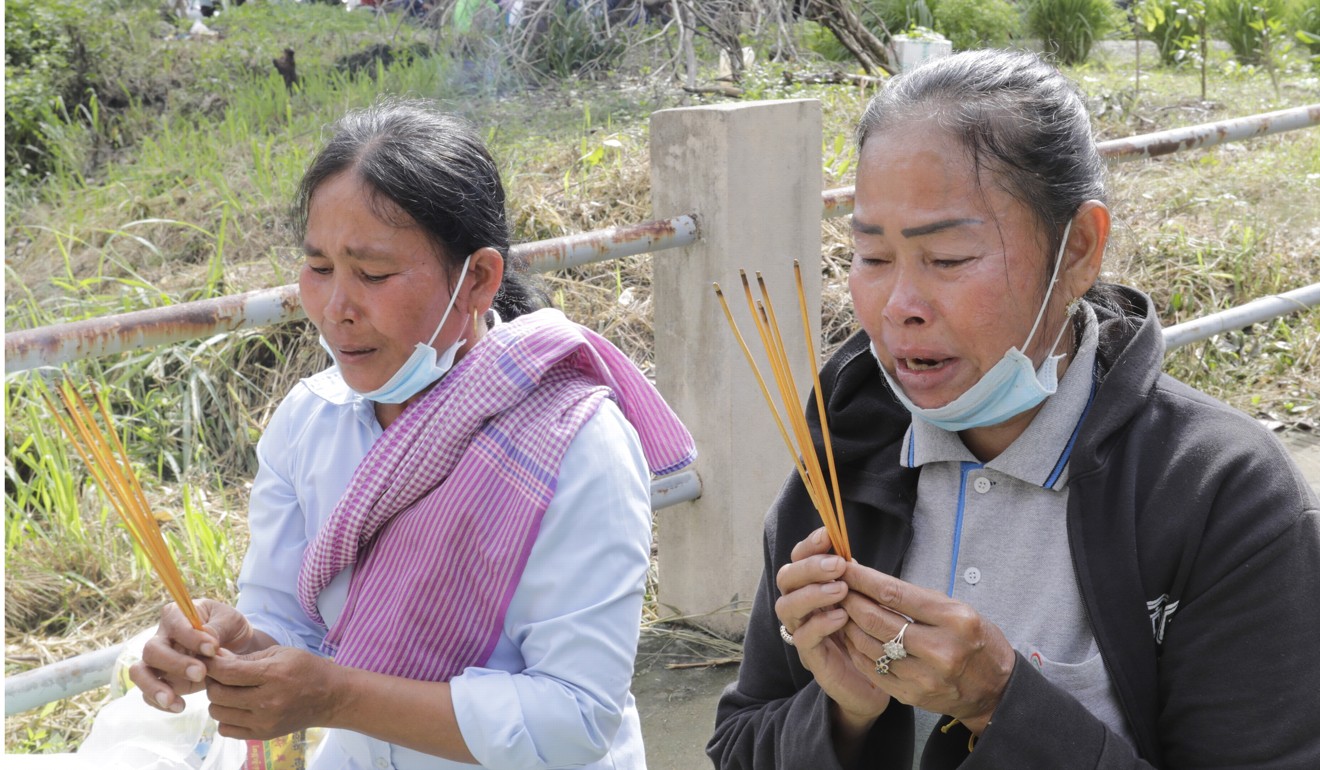
Cambodia building collapse: two workers found alive from Chinese-owned site
- Rescuers on Monday found two survivors beneath the rubble of a Chinese-owned building that collapsed on Saturday
- A hospital official said the two were in ‘serious condition’ after being trapped with no food or water for two days
A hospital official said the two were very weak and could only speak in a soft voice.
“They are in serious condition after being trapped since early Saturday without any food or water,” he said on condition of anonymity because he was not authorised to speak to the media.
Workers clawed back the rubble overnight as a grim-faced Cambodian Prime Minister Hun Sen visited the scene of the collapse. He ordered inspections of all building sites in the town.
These buildings are coming up in just a year. We have been concerned for a long time about the quality of these Chinese buildings.
Three Chinese nationals and a Cambodian landowner have been held for questioning over the building collapse.
The governor of Preah Sihanouk province resigned on Monday, saying he had made a managerial “mistake”, according to a post on Hun Sen’s Facebook page.
The Chinese embassy expressed its condolences and said it was mobilising Chinese assistance for the rescue.

Residents near the disaster scene said they had long feared tragedy was imminent.
“These buildings are coming up in just a year,” said Sock Dara, 45. “We have been concerned for a long time about the quality of these Chinese buildings.”
A reporter on Monday morning saw a partially buried body, covered by a mosquito net, as the debris was cleared by hand, pneumatic drills and diggers.

Distraught relatives at a local hospital said around a dozen people were believed to still be entombed in the collapsed building.
“I lost my husband and my nephew,” said Khim Pov, 47, crying and hugging her daughter as her son – who was able to crawl out from the debris – received treatment. “I don’t have any hope my husband has survived. The bodies being pulled out have been flattened,” she said.
How Chinese money is changing Sihanoukville
The once-quiet fishing village of Sihanoukville has seen a remarkable Chinese construction boom driven by the need for rooms for tourists flocking from the mainland to its dozens of casinos.

There are an estimated 200,000 construction workers in Cambodia, most unskilled, reliant on day wages and not protected by union rules, according to the International Labour Organisation (ILO).
Why Cambodian property is attracting Chinese investors
Around US$1 billion was invested in the Preah Sihanouk province between 2016 and 2018 alone, and there are around 50 Chinese-owned casinos and dozens of hotel complexes under construction in Sihanoukville.

.png?itok=arIb17P0)